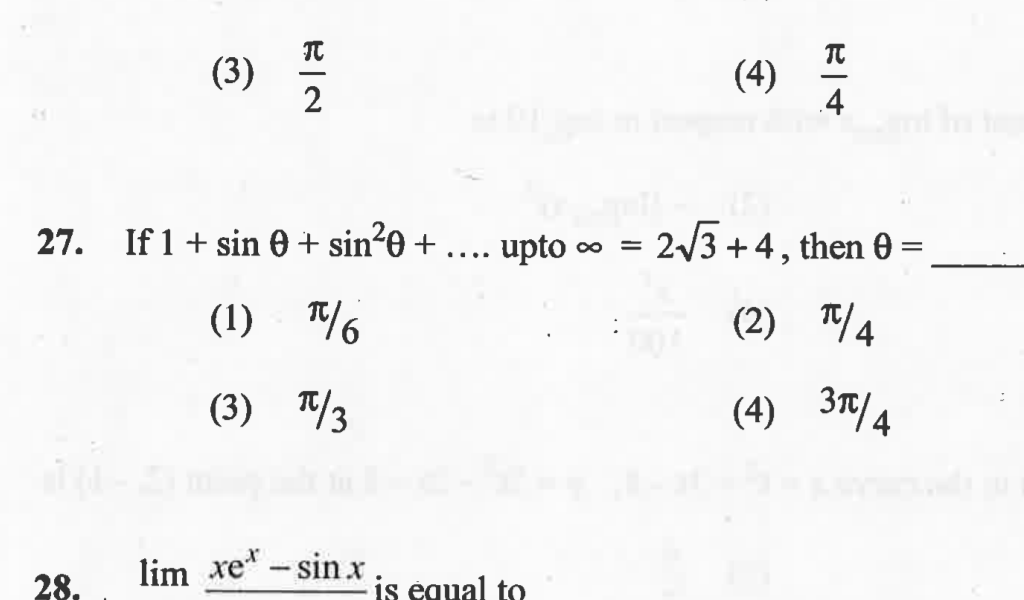There's another way, using Geometric progression.
The series is #1+sintheta+(sintheta)^2+(sintheta)^3+....+oo# which can be written as
#
(sintheta)^0+sintheta+(sintheta)^2+(sintheta)^3+....+oo# #[because "anything"^0=1]#
Our First term of progression #a=1# and common ratio between each term of the series is #r=sintheta#
Sum of an infinite Geometric Progression series is given by :
#S_oo=a/(1-r), r≠1#
Plugging in the values we've
#S_oo=1/(1-sintheta)#
But, #S_oo=2sqrt3+4# is given.
So,
#1/(1-sintheta)=2sqrt3+4#
#=>1/(2sqrt3+4)=1-sintheta#
Rationalising the denominator on Left hand side,
#=>color(red)((2sqrt3-4))/((2sqrt3+4)color(red)((2sqrt3-4))) = 1-sintheta#
#=> (2sqrt3-4)/(12-16)=1-sintheta# #[because (a+b)(a-b)=a^2+b^2]#
#=>-(2sqrt3-4)/4=1-sintheta#
#=>-(cancel2sqrt3)/cancel4^2+4/4=1-sintheta#
#=> -sqrt3/2+cancel1=cancel1-sintheta#
#=>cancel-sqrt3/2=cancel-sintheta#
#=> sqrt3/2=sintheta#
#=>theta=sin^(-1)( sqrt3/2)#
#=> theta=60°=π/3#
Hope this helps. :)


